Film,
Video and
Digital
Grantees
(2023)
Learn more about the program, or see grantees from 2025, 2021, or 2019.
2023 New York City Film, Video and Digital Production Grantees
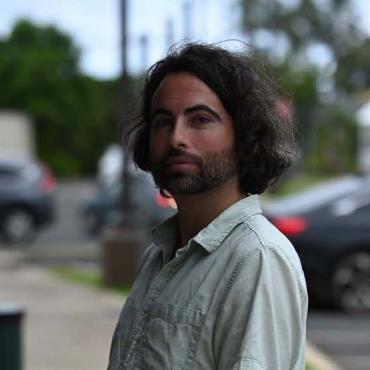

Photo credit: Chris Hardi
Anthony Banua-Simon is an award-winning documentary filmmaker and editor named one of Filmmaker Magazine's 2021 "25 New Faces of Independent Film" and DOC NYC's 2022 "40 Under 40." His debut feature documentary, Cane Fire, played at the 2020 Hot Docs Film Festival as well as the 2021 MoMA Doc Fortnight and won Best Documentary Feature at the 2020 Indie Memphis Film Festival and the 2021 Los Angeles Asian Pacific Film Festival. Cane Fire was distributed theatrically by Cinema Guild and is available to stream on The Criterion Channel. The film has received praise in RogerEbert.com, Jacobin, Film Threat, and Hyperallergic, among several other outlets. His short documentary about two former workers of the Domino Sugar Refinery, Third Shift, won “Best Short Documentary” at the 2014 Brooklyn Film Festival and previously streamed on The Criterion Channel. Anthony has been featured in The New York Times, BOMB Magazine, Screen Slate, and HuffPost.
After more than a century of industrial farming and testing of harmful pesticides from both the sugar and biotech industries on the Hawaiian island of Kauaʻi, feature documentary The Experiment Station looks towards a growing food sovereignty movement led by Native Hawaiians and how it contends with Hawaii’s legacy of colonialism and extractive capitalism. What was once considered an impossibility in restructuring Hawaii’s economy has now become an ecological necessity for survival.
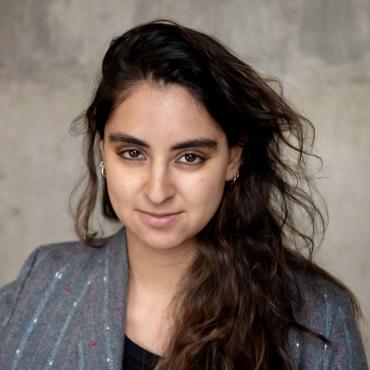

Karina Dandashi is a multicultural Arab-American Muslim filmmaker born and raised in Pittsburgh, PA. Her films explore nuances in identity through the intersection of family, religion, and culture in Southwest Asian and North African (SWANA) and Muslim communities in America. Her work has been featured in numerous Oscar-Qualifying festivals around the U.S. and recently screened at The Museum of Modern Art. Karina is a 2020 Creative Culture Fellow at The Jacob Burns Film Center and a 2021 Sundance Ignite Fellow. She was featured in Marie Claire’s inaugural Creators Issue as one of the “Top 21 Creators to Watch"" in 2022. Her feature film debut, Out of Water, was chosen for the 2023 Film Independent Screenwriting Lab.
Out of Water is a feature-length film about a young woman coming of age in Pittsburgh, Pennsylvania, to a Syrian-born Muslim father and an American mother. While trying to pass her driver's license test, ignore feelings for her best friend, make it through Ramadan, and pick the perfect dress for her Twilight-themed junior prom, Sama’s days are packed. She often finds solace by escaping reality through pop-culture fueled daydreams. When Sama’s grandpa arrives from Syria, her relationships with her family members and her identities, including her sexuality, are put to the test. Sama attempts to answer the question: what does it mean to belong somewhere? And why am I being haunted by a life-sized Daniel Tiger puppet?
Photo by Lynda Shenkman
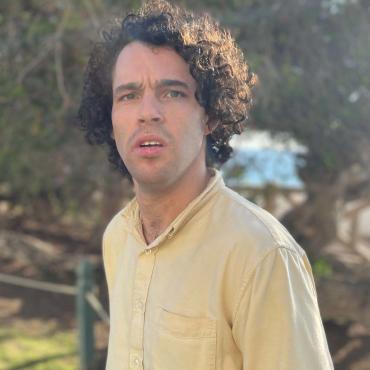

Reid Davenport makes documentaries about disability from an overtly political perspective. Reid’s film, I Didn’t See You There, won the Directing Award for U.S. Documentary at the 2022 Sundance Film Festival and the Truer Than Fiction Award at the 2023 Independent Spirit Awards. It was also a Gotham Nominee for Best Documentary and won awards at Full Frame Documentary Film Festival and the San Francisco International Film Festival. Nick Allen of RogerEbert.com described the film as “first-person poetry in captivating motion.” Vox called it a “must-see.” Life After, is being produced by Multitude Films and has received support from The Ford Foundation, Sundance, Field of Vision, and Catapult Film Fund. In 2020, Reid was named to DOC NYC’s “40 Filmmakers Under 40.” His short film, A Cerebral Game, won the Artistic Vision Award at the 2016 Big Sky Documentary Film Festival.
The starting point of Life After is the controversial 1980s case of Elizabeth Bouvia, who sued for the right to die because she was disabled and won—before assisted suicide was even legal for terminally ill patients. The film will uncover Bouvia’s life after she receded from public consciousness, up until she died in 2014. That same year, Jerika Bolen publicly planned to end her life with the help of her family because she was disabled. She was 14. In 2020, a doctor decided that Michael Hickson, who was being hospitalized with COVID-19, had “no quality of life” as a quadriplegic with brain damage, and removed Michael from a ventilator against his wife’s wishes. Claims of medical coercion and discrimination were dismissed in court. Life After will piece together the different ways that the legal and medical systems continue to aid and abet each other in making disabled death palpable.
![[Pilar] a white animator in her twenties standing in front of a scenic forest during the day. She's smiling softly at the camera, mid-thought.](/sites/default/files/styles/square/public/2023-10/Garcia-Fernandezsesma%2C%20Pilar.jpg?h=d3adf50d&itok=NLQu_TGl)
![[Pilar] a white animator in her twenties standing in front of a scenic forest during the day. She's smiling softly at the camera, mid-thought.](/sites/default/files/styles/square/public/2023-10/Garcia-Fernandezsesma%2C%20Pilar.jpg?h=d3adf50d&itok=NLQu_TGl)
Pilar Garcia-Fernandezsesma is a short film director and animator from and based out of New York. Her body of work largely deals with the interplay of digital and traditional mediums and textures, while exploring themes of femininity, familial dynamics, and our relationships to the natural world. Much of her film work falls under the genre of Folk Horror, with an emphasis on rural settings and the isolation and beauty within them. Pilar is a Student Academy Award Gold medalist for her film Ciervo and a Glas Animation Grant recipient for her film Colony. Her films have been shown in Oscar-qualifying festivals such as Slamdance, Cinanima, RIIFF, Annecy, Animafest Zagreb, Animest, and the Brooklyn Film Festival. She has also worked on a variety of projects that have gone on to premiere at Tribeca, win Emmys, and be shown at other prominent festivals like SXSW and the Ottawa International Animation Festival.
Pajarito is an animated short film set in Spain in the late 1980s, around the time Spain became officially part of the European Union and abortion became legal. It’s an experimental narrative utilizing a mixture of soft and dreamy guache-painted animation and digital techniques, and explores two sisters as their family dynamics change when one of them has a baby. Pajarito uses the metaphor of Cuckoo birds invading other birds' nests juxtaposed with the main storyline to explore the lines between mother and mothered and family dynamics concerning neglect and the inability to bond with your own family. Like baby birds, eventually, we must fend for our own survival.
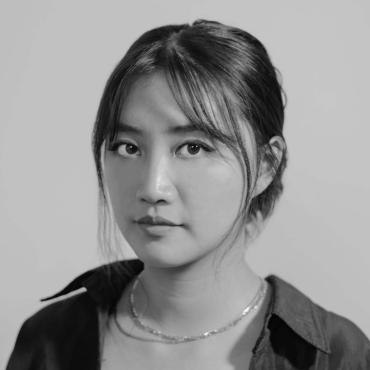

Ash Goh Hua is a New York-based, Singapore-born and raised filmmaker. They tell political stories personally through experimental leaning documentaries, challenging dominant ideologies in order to imagine possibilities of other worlds. Named one of the 25 New Faces of Film by Filmmaker Magazine in 2022, Ash has been supported by programs and fellowships from institutions like Sundance, ITVS, Jacob Burns Creative Culture, Jerome Foundation, and NYFA. Ash is an active member of the Asian American Documentary Network, Brown Girls Doc Mafia and the Brooklyn Filmmakers Collective. Their 2020 film I’m Free Now, You Are Free (distributed by PBS POV Shorts) screened and won awards at film festivals internationally, including Sheffield DocFest, BlackStar Film Festival, Camden International Film Festival, Big Sky Documentary, and Ann Arbor Film Festival. Ash's 2022 film is the Oscar®-qualifying The Feeling of Being Close to You (distributed by The New Yorker), which won Best Documentary Short Award at the New Orleans Film Festival and screened at Palm Springs International Film Festival, Singapore International Film Festival, and True/False, among others.
Full Month is a short narrative film about Jing, the black sheep of her family, who returns home to Singapore following the birth of her nephew after almost a decade away. At the baby's full month celebration, she is forced to confront her contentious relationship with her estranged mother and a traditional family politic—the causes of her departure a decade prior.
Photo Credit: Kristie Chua
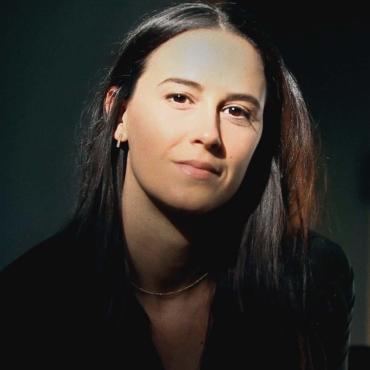

Caitlyn Greene is a filmmaker from the American South who splits her time between Brooklyn and New Orleans. She received a Primetime Emmy and an ACE Eddie Award for her editing on “The Jinx,” HBO’s Peabody Award-winning documentary series. Her recent documentary short The Diamond was acquired by The New Yorker after premiering at the Camden International Film Festival, where it won CIFF’s Vimeo Staff Pick Award. Her previous short films have screened at festivals around the world and taken home several jury awards along with a Vimeo Staff Picks' Best of the Year. Other editing projects include the vérité documentary feature When Lambs Become Lions, for which Caitlyn was awarded Best Editing at the Tribeca Festival and nominated for an IDA Documentary Award, as well as FX’s documentary series A Wilderness of Error, from Marc Smerling (“The Jinx”) and Errol Morris.
The River (working title), Caitlyn’s feature directorial debut, is a character-driven documentary feature in Louisiana about the Mississippi River and the control of nature.
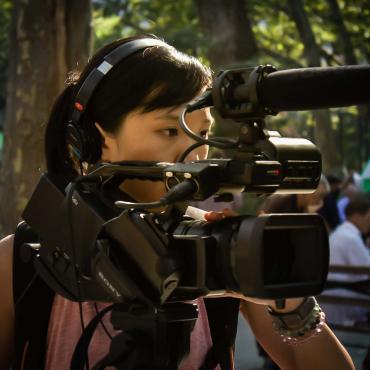

ManSee Kong creates films and videos inspired by communities organizing for social change. Her work has screened at Museum of Modern Art, Museum of the City of NY, Glasgow Women’s Library, film festivals, universities, and community spaces, with support from the Jerome Foundation, New York State Council on the Arts, Lower Manhattan Cultural Council, BRICarts, Camargo Foundation, Puffin Foundation, Spike Lee Production Fund, and Asian Women Giving Circle. She co-founded Chinatown Art Brigade with Tomie Arai and Betty Yu, a cultural collective that uses art to support community-led campaigns for social justice. ManSee is a Third World Newsreel Production Workshop alum with an MFA in Film from NYU.
When a 19-year-old American soldier is found dead in a U.S. Army base in Afghanistan after relentless racist hazing by his supervisors, community leaders in New York’s Chinatown mobilize and embark on a multiyear journey to demand justice for Private Danny Chen and his family. What Happened to Danny is a feature-length documentary about a family’s strength, the legacy of discrimination in the U.S. and its military, and the healing potential of grassroots community organizing.
Photo Credit: Corinne Manabat
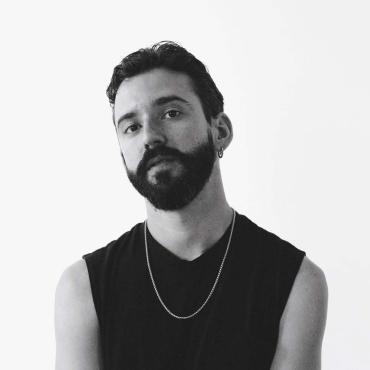

Diego Andres Murillo is a filmmaker born and raised in Caracas, Venezuela. Diego graduated from Audiovisual Arts at the Andrés Bello Catholic University and The Roberto Mata School of Photography. He left his constantly turmoiled native country in 2016 and unexpectedly settled in NYC, his current home. While adapting, he continues his DIY methods to create movies, which has led him, until this date, to the completion of 5 short films and one upcoming feature. The shorts have screened/won awards at international festivals such as the Locarno Film Festival, SITGES Film Festival, Brussels Film Festival, Cinélatino de Toulouse, Uruguay Int. Film Festival, Curtas Cinema Río de Janeiro, Brooklyn FF, Tacoma FF, Beijing Int. SFF, and many more. He’s been part of programs such as the Locarno Spring Academy, Cine Qua Non-Lab, and others. He is the co-founder of Maldito Fantasma (Damn Phantom), a production company spread between Caracas, Buenos Aires and NYC.
El Sonido Es El Cuerpo (Sound Is The Body) follows the wanderings of a laborless priest in a decaying Venezuelan town where animals and people just leave or disappear, and a few remaining authorities hoard over the remnants that occupy half-empty neon-lit bars. As he suffers from a somnambulist-noise condition that makes him stray naked, bleed, and forget certain events, he now faces the possible seizing of his only precious possession, a meek cow. As he tries to safekeep the animal, his sleepwalking encounters get louder and more alien-like, and a re-encounter with an old friend who is interested in helping him brings to the surface repressed desires. The film creates a moving space, shifting between dreams, memories, and the quotidian to explore an intimate crisis of faith, one that can perhaps serve as a radiography of a territory in constant distress.


Dominique Nieves is a disabled Nuyorican filmmaker. She was named a BAFTA Breakthrough Writer-Director for her Telly Award-winning magic realism film, Our Lady Lupe, which was produced in association with PBS for their Primetime Broadcast Special, The Latino Experience. She used Our Lady Lupe to feature her favorite things: Latina leads, brujería, and a dog.
Nieves entered the industry as an actress, but one-dimensional roles for Latinas led her to found Iron Glove Productions, highlighting underrepresented voices authentically on-screen. Her work has garnered recognition from CINEQUEST, HollyShorts, and screened throughout the United States. She has been recognized as a Telemundo Unstoppable Woman and was recently honored by Columbia University’s Lion Pride, celebrating her as an outstanding alumnus who uses her artistic work to uplift her community. As an ardent supporter of Latinx voices, Dominique created the Read Latinx Writers Initiative, pairing over 450 emerging Latinx writers with mentors.
Revolve is a narrative film centering Zaya, a disabled Afro-Latina teen who takes on the intersection of gun violence and gentrification in her Washington Heights neighborhood through artistic advocacy. In an attempt to take control of saying goodbye to her first love, she takes him to her art studio hidden in her uncle’s Botánica. She scoffs at Santería, but a close encounter with gun violence may soon make her a believer. Zaya is distinct from other superheroes because she doesn’t look like one; not because she’s a girl, or Afro-Latina, or using a wheelchair, but because she’s not green, or gigantic, or covered in armor.
photo credit: David Noles
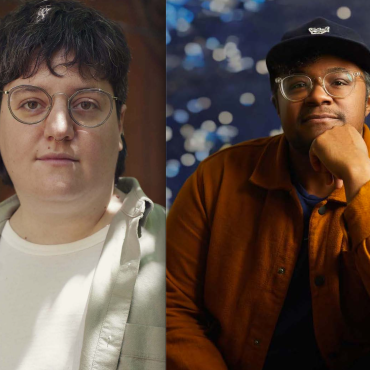

Noah Schamus (they/them) is a filmmaker and educator. Their first narrative feature, Summer Solstice premiered at Provincetown Film Festival and has gone on to play at festivals including Deauville, Mill Valley, BendFilm, and NewFest. The film was the recipient of the Panavision New Filmmaker grant and won the Platige Image Award at US in Progress at the American Film Festival.
Brit Fryer (he/him) is a Brooklyn-based queer and trans filmmaker, originally from Chicago’s South Side. He has directed several films, including Caro Comes Out, which premiered on HBOMax after winning the Knight Made in MIA Award. In addition to his work as a director, he produced Crystal Kayiza’s Rest Stop, winner of the 2023 Short Film Jury Award for US Fiction at Sundance.
Noah and Brit co-directed most recently co-directed the hybrid documentary short, The Script, which premiered at CPH:DOX 2023.
With Time is a hybrid documentary film. Part archive building and part creative exercise, With Time starts in a simple black box theater in a community-based workshop focused on storytelling and dramatic writing. Over the course of five workshops, this group will brainstorm, develop, and revise stories of personal and historical significance, with the general prompt to explore an important moment in their understanding of their gender and/or queerness. Session by session, each workshop member will get closer to completing a script depicting the memory or moment of their choosing. The goal of this process is to infuse each script with subjectivity and give every person a chance to reckon with their own memories. From this workshop and with the support of a film crew, these narrativized memories will be turned into fully staged recreations.
Brit Fryer headshot: LaQuann Dawson (https://laquanndawson.com/) (right photo)
Noah Schamus headshot: Leah James (https://www.leahjamesart.com/) (left photo)
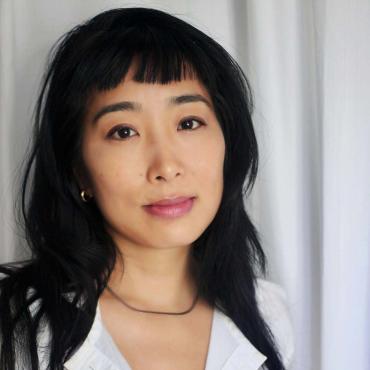

Yuko Torihara is a Tokyo-born, NYC-based actor, writer and filmmaker. She grew up between Japan, the UK, and the US. Performance and storytelling have been natural ways to make sense of her constantly changing environment. As a filmmaker, her projects have been supported by the Sundance Institute, The New Yorker Films, NYFA, NYSCA, and the Hot Docs Deal Maker. Her short documentary Chinatown Beat, about Chinatown legends crime novelist Henry Chang and photographer Corky Lee, was published in The New Yorker in March of 2021. As an actor, Yuko’s latest works include recurring roles on Ryan Murphy’s Netflix series “The Watcher” and Audible’s Podcast Series “The Space Within.” She trained with Anthony Abeson, Carl Ford (Susan Batson studio) and Jim Brill (Meisner Technique) in New York City as well as the Mugensha Theater Troupe in Tokyo.
A Revolutionary/Mother is a feature narrative film based on true incidents, told in live action and animation. At the height of Covid lockdown in the wake of George Floyd’s murder, Yuko, a NYC-based millennial, undergoes a revolution of her own. She befriends Fusako Shigenobu, the former leader of the Japanese Red Army (JRA), serving a 21.5-year prison sentence in Japan. Yuko deep dives into the little-known Japanese history of global resistance as a way of making sense of her current reality. Fusako, a contentious feminist figure seen both as a hero and a terrorist, paved a singular path in Japan's global history. Meanwhile, Fusako’s daughter May encapsulates the shadow side of her mother’s actions. Part biopic and part coming of age story of 3 middle-aged women, A Revolutionary/Mother spans over 50 years across Tokyo, Beirut, and Covid-era New York City."


Alex Bijan Zandi is an Iranian-American filmmaker and artist based in Brooklyn. His work explores the social difficulties and enchantments of the Middle Eastern diaspora. Alex studied creative writing at the Washington University in St. Louis, where he received the Howard Nemerov Prize for Poetry. He went on to receive an MFA in Film/Video at Bard College. Alex was a 2022 Reykjavík Film Festival Talent Lab fellow and in 2021 participated in the MACRO x The Black List Feature Screenwriter Incubator. His films have been screened internationally at venues including the Amsterdam International Film Festival (Best Experimental Film Award), Brooklyn Film Festival, Abrons Art Center, Knockdown Center, Petzel Gallery, and 15 Orient Gallery.
As the protests for Mahsa Amini surge, Echoes of Pomegranate transforms an Iranian-American family’s bird-watching trip into a cosmic journey of revolutionary wonder. Converging Zandi’s familial history of the 1979 Iranian revolution with the present, the narrative short weaves digital with 8mm film and constructs a third space of archival re-enchantment. The dialectic between the young protesting protagonist, Shirin, and her scarred father, Abbas, generates a cinematic tapestry of the intergenerational conflict and trauma of the Iranian community. Entering fantastical archival film grain, they ultimately discover the redemption of their culture and homeland. Echoes of Pomegranate is for Mahsa Amini and all the brave ones. Women, Life, Freedom.
Photo Credit: Taylor Brophy
2023 Minnesota Film, Video and Digital Production Grantees
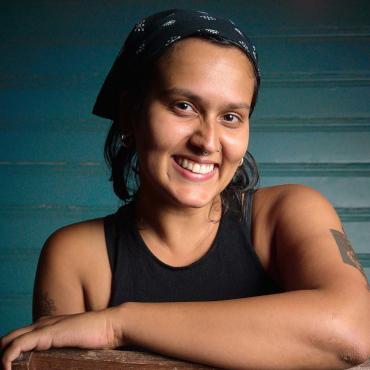

Serena Violet Hodges is a documentary cinematographer and filmmaker based in Los Angeles and Minneapolis. Serena has worked on series including “30 for 30” (ESPN), “High on the Hog” (Netflix), “Asian Americans” (PBS), and provided cinematography for feature documentaries Food and Country (2023), Following Harry (2024), plus an upcoming Judy Chicago retrospective. Serena holds a B.A. in documentary production from DePaul University in Chicago and served as an intern for Kartemquin Films during their time in college—where their love of nonfiction storytelling flourished. They were a Visual Communications Armed with a Camera fellow in 2020. Their first fiction short, Mango Baby, premiered at the Los Angeles Asian Pacific Islander Film Festival and Seattle Asian American Film Festival. It is available to watch on Alaska Airlines through March 2024.
Muncie Didu investigates the parallels of the legal and cultural dynamics of marriage between India and the United States. Upon discovering a buried and contentious divorce case within their family, a case that played a pivotal role in altering divorce law for women in India and the impetus of their family’s immigration to America, a filmmaker embarks on a documentary journey to delve deeper into the life of their great-aunt, Meera and her courageous defiance against the societal norms and expectations of her community that paved the way for her loved ones.
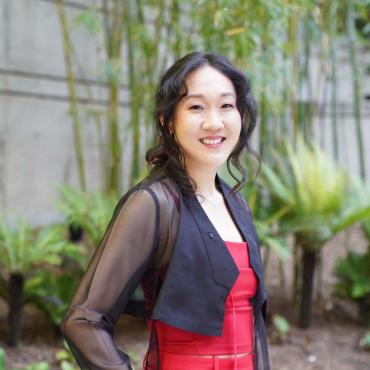

Naomi is a Korean American filmmaker. Her pilot, Nice, premiered at the Tribeca Film Festival. She also co-founded an Asian female-identifying comedy group called Funny Asian Women Kollective. Naomi is a 2023 Sundance Women to Watch x Adobe Fellow, a Sundance Institute|The Asian American Foundation Fellow, a 2022 Sundance Episodic fellow, and a 2021–2022 Sundance Art of Practice fellow.
The 20-Year Curse is a dark comedy about Eunji, who is in a 20-year generational family curse. To break it, she embarks on a journey with her father, Hae Su, that spans both the material and spirit world.
Photo credit: Oscar Moreno


Atlas O Phoenix, using they/them/theirs pronouns, is a highly acclaimed director, writer, producer, and editor known for creating impactful and dynamic films that explore both the shadowy and uplifting aspects of humanity, whether through fictional narratives or visual personal essay-styled documentaries. Atlas is forging a path as they explore their intersectional identities with an interest in breaking down invisible barriers. Furthermore, they have also showcased their talents as an actor and performer in esteemed productions such as “Dykes Do Drag” (2017-2020) and “The Naked I” series (2018/2020).
Beautiful Boi is a poignant and evocative documentary, a mesmerizing fusion of reality and imagination, that responds to the questions, “What happens when you have the strength to liberate yourself from the suffocating grip of imposter syndrome, shed the burdensome weight of labels and preconceived notions, and embark on a journey of self-discovery through various therapeutic avenues? What happens when you find the courage to pick up the shattered pieces of your heart after losing the one you loved most, all while grappling with the darkness of your own mind, the darkness that pushed you to the edge nine times before? And what happens when, against all odds, you muster the bravery to embrace your true self and embark on a remarkable transformation at the age of fifty, defying societal expectations and norms?”
Photo: Atlas O Phoenix
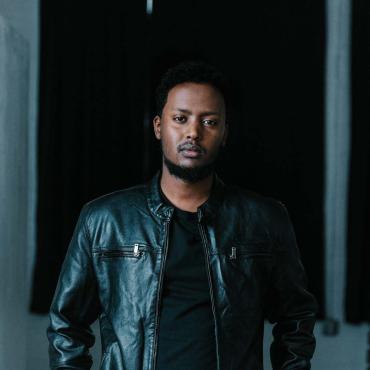

Mohammed Sheikh’s filmmaking journey began unexpectedly in the Kebribeyah refugee camp in Eastern Ethiopia. There, his mother’s storytelling and audio tapes kindled a passion for storytelling and film. Today, Mohammed is a self-taught filmmaker focusing on Somali narratives. Works like The Forgotten Ones and Luul shed light on vital issues and have gained recognition on platforms like CBS, Sahan Journal, and MPR News. Mohammed’s creative wellspring draws deeply from his environment, and he has forged a robust reputation within his community and become a voice that resonates with our shared values and culture, earning the trust of both my community and colleagues. Mohammed’s mission is to authentically represent the Somali community in the Twin Cities through storytelling and filmmaking, filling the void for accurate and positive portrayals.
Balwo is a short film that explores the generational divide and the pursuit of dreams within a Somali immigrant family living in Minneapolis. The story revolves around Sinimo, a talented musician who yearns to pursue his passion for music, much to the disappointment of his father, Aabo, who values practicality over artistic aspirations. Balwo thoughtfully examines the intricate themes of cultural identity, generational disparities, and the relentless pursuit of personal aspirations. It underscores the profound transformative power of art in fostering unity within a family. Sinimo’s fervent dedication to music often clashes with his father’s expectations of a more conventional and stable life.
2023 Minnesota Film, Video and Digital Development Grantees
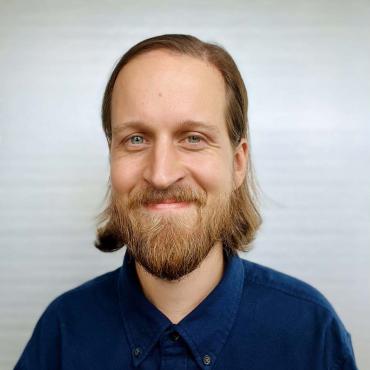

Adam Loomis [he/him] is a self-taught animator, educator, and film programmer based in Minneapolis, Minnesota. After completing a Bachelor of Arts in Studies in Cinema and Media Culture in 2011 at the University of Minnesota Twin Cities, he began developing a practice in animation. Since 2015, he has screened his short, animated films at numerous local events and animation festivals around the globe. Adam further expresses his commitment to promoting and advocating for independent animation as adjunct faculty in the animation department at Minneapolis College of Art and Design, as Co-Director of MinnAnimate (a festival that celebrates Minnesota-made animation), as well as in past roles with Hellavision Television Animation Show, Walker Art Center, Trylon Cinema, and Minneapolis St. Paul International Film Festival.
Jasmine is an animated short film about a man named Abel, whose one joy in life is laying eyes on his pet lizard. When the lights in Jasmine’s enclosure go out, a series of mishaps force Abel out of the darkness.
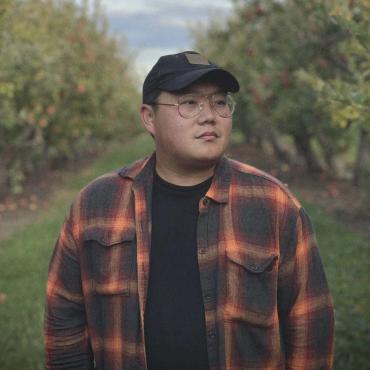

Yeej Moua is a multi-hyphenate artist and Fine Arts educator based in Minnesota. He graduated from the University of Montana with a BFA in Media Arts, emphasis in Digital filmmaking and a minor in Theater. Yeej has written and directed two short films, Cotton Candy, an official selection at 2017 Qhia Dab Neeg Film Festival in St. Paul and The Wind Always Strikes the Highest Mountain, a project funded through Northern Lights MN, Northern Spark Festival 2021. Along with directing, Yeej has worked on numerous projects as a Production Designer. He finds inspiration through the aesthetics of the world and hopes to continue inspiring others on the wonders of storytelling from the lens of a Hmong American Artist.
Pink Drink is an auto-fictional comedic short film. It follows Wynn, a thirty-year-old Hmong man as he attends a cultural gathering for his “more successful” cousin. This leads to a confrontation that involves familial expectations, six pack abs, and a whole lot of Pink Drink.
